Classics of Modern Catholic Spirituality (19 vols.)
Digital Verbum Edition
Overview
Study modern Catholic thought and philosophy with key spiritual writings spanning from the sixteenth to the twentieth centuries. Classics of Modern Catholic Spirituality presents sermons, poetry, essays, seminal treatises, correspondence, founding documents for religious orders, and more. Learn about the spirituality of John Baptist de La Salle, the father of modern education. Pore over sermons by John Henry Newman. Lose yourself in the spiritual musings of Teresa of Ávila, Elisabeth Leseur, and Maria Maddalena de’ Pazzi. You’ll find inspiration from saints, clergy, mystics, Doctors of the Church, and other notable figures featured in this comprehensive collection.
In the Verbum editions, these volumes are enhanced by amazing functionality. Important terms link to dictionaries, encyclopedias, and a wealth of other resources in your digital library. Perform powerful searches to find exactly what you’re looking for. Take the discussion with you using tablet and mobile apps. Your software brings the most efficient and comprehensive research tools together in one place, so you get the most out of your study.
These volumes are part of the Classics of Western Spirituality Bundle (126 vols.). Get the entire bundle for even more savings.
Key Features
- Presents the spiritual writings of prominent Catholic figures from the last five centuries
- Introduces several significant schools of thought, religious orders, and more
- Provides a glimpse into the spirituality behind many well-known Catholic mystics
- Includes rare English translations of important works
Product Details
- Title: Classics of Modern Catholic Spirituality
- Publisher: Paulist Press
- Volumes: 19
- Pages: 6,615
- Christian Group: Catholic
- Resource Type: Topical
- Topic: Spirituality
Individual Titles
- Alphonsus de Liguori: Selected Writings edited by Fredrick M. Jones
- Angelus Silesius: The Cherubinic Wanderer translated by Maria Shrady
- Bérulle and the French School: Selected Writings edited by William M. Thompson
- Elisabeth Leseur: Selected Writings edited by Janet Ruffing
- Fénelon: Selected Writings edited by Chad Helms
- Francis de Sales, Jane de Chantal: Letters of Spiritual Devotion translated by Péronne Marie Thibert
- Jeanne Guyon: Selected Writings edited by Dianne Guenin-Lelie and Ronney Mourad
- John Baptist de La Salle: Spirituality of Christian Education edited by Carl Koch, Jeffrey Calligan, and Jeffrey Gros
- John Henry Newman: Selected Sermons edited by Ian Ker
- John of Avila: Audi, filia–Listen, O Daughter translated by Joan Frances Gormley
- John of the Cross: Selected Writings edited by Kieran Kavanaugh
- Luis de León: The Names of Christ translated by Manuel Durán and William Kluback
- Maria Maddalena de’ Pazzi: Selected Revelations translated by Amando Maggi
- Miguel de Molinos: The Spiritual Guide edited by Robert P. Baird
- Robert Bellarmine: Spiritual Writings edited by John P. Donnelly and Roland J. Teske
- Sor Juana Inés de la Cruz: Selected Writings translated by Pamela Kirk Rappaport
- Teresa of Avila: The Interior Castle edited by Kieran Kavanaugh
- Theatine Spirituality: Selected Writings edited by William V. Hudon
- Vincent de Paul and Louise de Marillac: Rules, Conferences, and Writings edited by Frances Ryan and John E. Rybolt
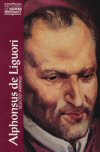
This volume contains selected writings of Alphonsus de Liguori (1696–1787); saint, bishop, founder of the Redemptorists, and Doctor of the Church. These writings touch on many different areas: spirituality, spiritual direction, devotion, prayer, and moral theology.
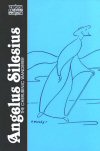
This volume contains poetic texts by one of the great German mystics of the seventeenth century, Angelus Silesius (1624–1677). These texts, written in the form of the epigram, are still used today for contemplative prayer and as part of German Christmas folklore.
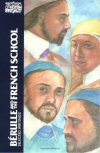
This work provides an introduction to the history and major themes of the seventeenth-century French School of Spirituality and its contemporary relevance. Included are works of Pierre de Bérulle (1575–1629), Madeleine de Saint-Joseph, Jean-Jacques Olier, and John Eudes.
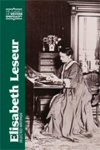
Elisabeth Leseur (1866–1914) was a French lay women whose work touched suffering, devotions, and lay and feminist spirituality. This volume contains selections from her entire corpus, including her letters, which have never before appeared in English.
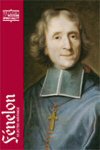
This book offers, for the first time in English, a translation of Fénelon’s (François de Salignac de la Mothe-Fénelon) (1651–1715) major spiritual writing, the Maxims of the Saints and other seminal works of fiction and spiritual direction, such as the famous “Letter to Louis XIV.”
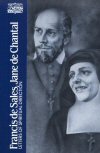
This volume consists of letters of spiritual direction written by Francis de Sales (1567–1622) and Jane de Chantal (1572–1641) that reveal the richness of Salesian spirituality. The letters show the daily attempts of laity, clergy, cloistered religious, and others to live in the authentic spirit of Jesus.
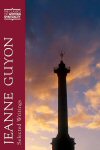
Jeanne Guyon: Selected Writings
- Author: Jeanne Guyon
- Editor: Dianne Guenin-Lelie and Ronney Mourad
- Translator: Dianne Guenin-Lelie and Ronney Mourad
- Series: The Classics of Western Spirituality
- Publisher: Paulist Press
- Publication Date: 2012
- Pages: 368
Jeanne Guyon was a seventeenth-century French mystic and Quietist, and a fascinating figure in the court of Louis XIV. This book offers new translations of her most important spiritual and autobiographical writings and introduces readers to her life and work.
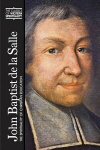
This book discusses the spirituality of the first major spiritual writer (1651–1719) to integrate the Christian vocation of education of the poor by lay men and women into a coherent spirituality. John Baptist de La Salle is considered to be the founder of modern education.
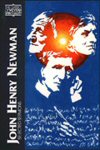
John Henry Newman (1801–1890), a convert from Anglicanism, is a seminal Roman Catholic theologian. This volume includes 34 of his Anglican sermons and four from other sources. This edition contextualizes Newman’s spirituality and is notable for its introduction by Ker, a leading Newman scholar.
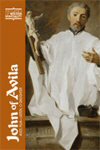
This volume contains a general introduction to the life and work of St. John of Avila (1499–1569), a major figure in the reform of the church in sixteenth-century Spain, along with a translation of his major work, the Audi, Filia, a guide to the spiritual life beginning from the ascetical practices of resisting the allurements of the world and terminating in union with the crucified Lord by which the soul shares Christ’s radiant beauty.
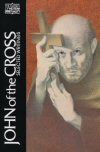
This volume contains carefully chosen texts that give a picture of the “essential” St. John of the Cross (1542–1591), a Spanish Carmelite. Included are selections from The Ascent of Mount Carmel, The Dark Night, and Spiritual Canticle.
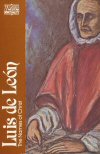
The Names of Christ, a masterpiece of the golden age of Spain, was written by Luis de León (1527–1591), an Augustinian friar, a professor, and a poet. Written in the style of a pastoral dialogue, it is a meditation on the significance of Christ’s names.
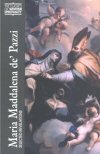
In one of the only English translations available, here are the mystical visions of Maria Maddalena de’ Pazzi (1566–1606), whose mystical works are a fascinating meditation on the nature and purpose of language.
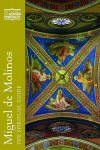
This volume features an unabridged translation into modern English of The Spiritual Guide, one of the classic texts of the Quietist movement. The Spiritual Guide was written by Miguel de Molinos (c. 1628–1696), who was one of the most important figures in the religious controversy known as Quietism.
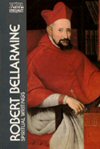
Robert Bellarmine: Spiritual Writings
- Author: Robert Bellarmine
- Editors: John P. Donnelly and Roland J. Teske
- Translators: John P. Donnelly and Roland J. Teske
- Series: The Classics of Western Spirituality
- Publisher: Paulist Press
- Publication Date: 1988
- Pages: 416
Robert Bellarmine (1542–1621), a Jesuit as well as a leading theologian of the Counter-Reformation, had an enormous effect on the religious life of his age. Included in this volume are two of his most influential ascetical works: The Mind’s Ascent to God, written in the tradition of Bonaventure and John Climacus, and The Art of Dying Well.
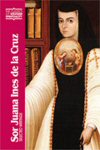
Sor Juana Ines de la Cruz (1648–1695), a Mexican Hieronimite nun, is considered to be one of the great lyric poets of the Spanish language. Here is the only translation of her religious writings in one volume, including poetry, drama, devotional works and her intellectual autobiography.
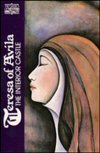
Teresa of Ávila (1515–1582), a Spanish mystic, is considered to be one of the most profound spiritual teachers in the history of Christianity. The Interior Castle is Teresa’s masterpiece.
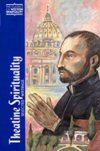
This volume presents key spiritual writings by members of the Theatine religious order, founded in Italy in 1524, along with an introduction that places the texts and the order in the context of Renaissance and Counter-Reformation Italy.
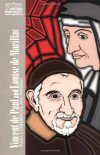
This volume contains the rules, conferences and writings of these two Vincentian founders who, through service to the poor, left an indelible mark on the church in France in the seventeenth century and beyond. Louise de Marillac (1591–1660) first came to Vincent de Paul (1581–1660) for spiritual direction and they became coworkers and friends for the rest of their lives.
These volumes are part of the Classics of Western Spirituality Bundle (126 vols.). Get the entire bundle for even more savings.
- Presents the spiritual writings of prominent Catholic figures from the last five centuries
- Introduces several significant schools of thought, religious orders, and more
- Provides a glimpse into the spirituality behind many well-known Catholic mystics
- Includes rare English translations of important works
- Title: Classics of Modern Catholic Spirituality
- Publisher: Paulist Press
- Volumes: 19
- Pages: 6,615
- Christian Group: Catholic
- Resource Type: Topical
- Topic: Spirituality
